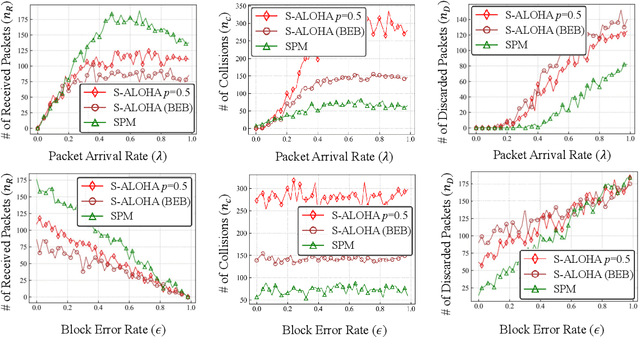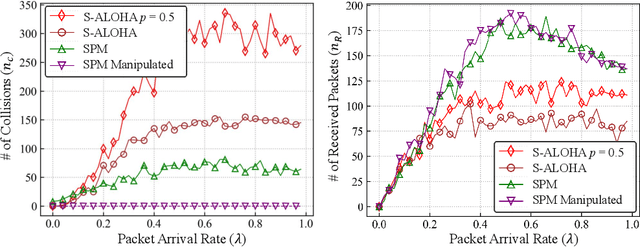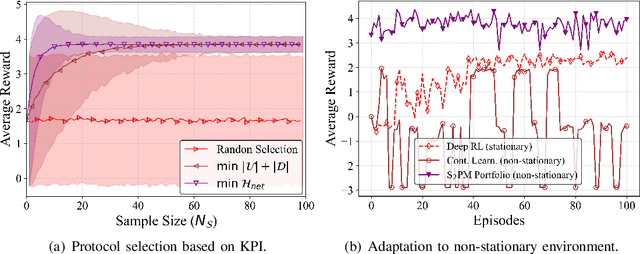Towards Semantic Communication Protocols: A Probabilistic Logic Perspective
Paper and Code
Jul 08, 2022



Classical medium access control (MAC) protocols are interpretable, yet their task-agnostic control signaling messages (CMs) are ill-suited for emerging mission-critical applications. By contrast, neural network (NN) based protocol models (NPMs) learn to generate task-specific CMs, but their rationale and impact lack interpretability. To fill this void, in this article we propose, for the first time, a semantic protocol model (SPM) constructed by transforming an NPM into an interpretable symbolic graph written in the probabilistic logic programming language (ProbLog). This transformation is viable by extracting and merging common CMs and their connections while treating the NPM as a CM generator. By extensive simulations, we corroborate that the SPM tightly approximates its original NPM while occupying only 0.02% memory. By leveraging its interpretability and memory-efficiency, we demonstrate several SPM-enabled applications such as SPM reconfiguration for collision-avoidance, as well as comparing different SPMs via semantic entropy calculation and storing multiple SPMs to cope with non-stationary environments.
 Add to Chrome
Add to Chrome Add to Firefox
Add to Firefox Add to Edge
Add to Edge